Royal Opera House hits low note



It is rare enough for directors to collaborate in theatre, even rarer in opera. Patrice Caurier (b. Paris, 1954) and Moshe Leiser (b. Antwerp, 1956) began their long collaboration in their 20s. They are now in their 50s, and since that first production of Britten’s A Midsummer Night’s Dream at Opéra de Lyon in 1982, they have never worked (or lived) apart. Cohabiting and collaborating, they are opera’s closest equivalent to Gilbert and George.
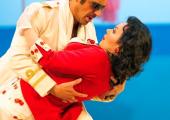
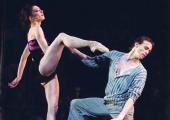
Another night, another cast, another Judas Tree (see first-night review below this) - and yet more proof of what a tough, durable, shape-shifting piece Kenneth MacMillan created in his last year of life. Recently theartsdesk interviewee Thiago Soares talked of his preparations to play the central male in this gladiatorial ballet, and last night he made the role of the Foreman his own, taking to the stage like a razor-edged switchblade as the head of the gang of labourers who prowl at night through Canary Wharf and carry girls’ bodies to and fro.
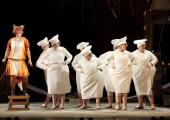
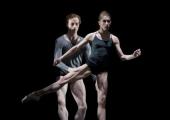
Someone sharp as a whip thought hard about the price-fun balance of the latest Royal Ballet triple bill. An accountant, probably. Deep inside the cloisters of the Royal Opera House, they said: “Now top price stalls are £97 each for Romeo and Juliet, that’s nearly £200 a pair. Interval wine at £6 a glass, £24. A programme, train fares from - say - Windsor at £15 each, plus taxis. That’s £260 for their evening. So for the triple, if we’re going to charge £37.50 top whack, we can hardly give them more than a third of the fun, can we?”

The spy out in the cold, the alienated Heathcliff of ballet, rough-hewn, moody and a little frightening - this is an image that’s commonly paraded of the choreographer Kenneth MacMillan. His ballets stand up that image, staging barely watchable sexual urges (The Judas Tree, My Brother, My Sisters), accusing polite society as a force for evil (Mayerling, Las Hermanas), smashing the porcelain in ballet’s china cupboard.
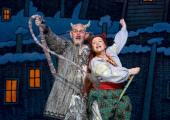
The term "Awards Ceremony" can strike terror into the stoutest of hearts, but hats off to the masterminds of the 2009 Classic FM Gramophone awards. Their shindig at the Dorchester was enjoyable, educational, and even intermittently hilarious (and for the right reasons).
Mathieu Herzog, viola player with France's Quatuor Ebène who carried off the lusted-after Recording Of The Year award for their disc of Debussy, Ravel and Fauré, even ran Antoine "Eurotrash" de Caunes close as the Frenchman the Brits love to love. Having tried, and failed, to phone his French amis back home to share the moment ("no signal," he shrugged), he took photos of the audience instead, before warning us that since the Quatuor's next disc would be pop and jazz, it might be years before Gramophone critics gave his combo the nod a second time.
Refreshingly lacking in the glittery crossover celebs who drape themselves over the Classical Brits, the event packed in nutritious quantities of classical bang-per-buck. Octogenarian Austrian conductor Nikolaus Harnoncourt made a worthy recipient of the Lifetime Achievement award, speed-fingered 22-year-old pianist Yuja Wang collected Young Artist of the Year, and the Artist of the Year paperweight went to the very lovely Harry Christophers and his ensemble The Sixteen.
Solo Vocal award was scooped by baritone Gerald Finley (an ex-member of The Sixteen, as he reminded us) and pianist Julius Drake, while Bryn Terfel (pictured right) loomed onto the stage to collect the Choral gong on behalf of the Dream of Gerontius recording by the Hallé Orchestra under conductor Sir Mark Elder.
Steven Osborne cheerily trousered the Concerto award for his Britten Piano Concerto, then amazed the house by springing to the piano and rocketing through Oscar Peterson's scarily rapid (Back Home Again In) Indiana, skilfully managing not to sound like a classical pianist at all. Assorted live performances, from The Sixteen singing plainsong to slightly bonkers contemporary music, were sprinkled refreshingly throughout the proceedings.